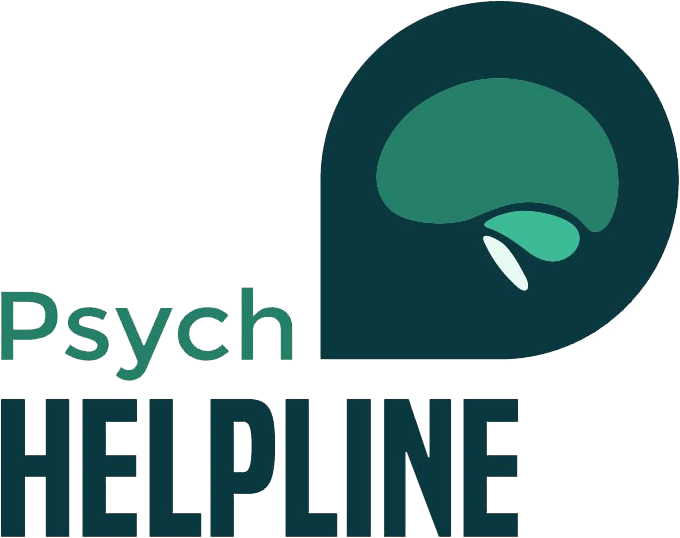Table of Contents
There’s no expiration date on grief or trauma. When referring to “healing”, one must be able to accept the fact that time is the most important factor. How much time you take to heal depends on the scenario, the extent of damage, and a maimed individual’s stamina. One can’t really compare two individuals and determine that one’s weaker than the other for taking more time to heal. Some people emotionally process breakups, deaths, and other traumatic events with more resilience. Meanwhile, others struggle to keep their heads high and crawl up into their shells until the grief subsides. If you’re wondering why on earth time matters so much, here’s an answer. While dealing with grief or trauma you need time to;
- Process what has happened to you
- Get out of the grieving phase
- Understand the reasoning behind such events
- Identify the triggers that might be triggering your sadness
- Discover ways to seek support and heal your wounds
Moreover, certain habits can prolong the extent of your healing. Most of these habits are influenced by the trauma inflicted on a person, personal habits, life history, and environmental influence. If you or someone dear to you is dealing with a scenario similar to this, you might be able to observe the following habits in them;
I. 6 Actions That Disrupt The Healing Process
Living In Denial
In most people denial is a stage of grief that comes way before acceptance. Denial acts as a coping mechanism and saves them from the emotional turmoil acceptance might cause. For instance; a large majority of sexual assault/rape victims tend to live in denial, fearing that they might be better off this way. The fear of accepting or recounting the events that happened to them stops them from ever uttering a word regarding those events.
A large percentage of such cases consists of survivors coming out with their horrifying stories years later. That’s because living in denial isn’t really a solution to what they’ve dealt with. Rather it’s another huge mountain standing between them and a heart without sorrows.
Denial stops traumatized individuals from admitting what has actually happened. Unless you admit what has happened and face the facts, you can’t really heal. It’s important to remember that denial sometimes happens unintentionally, yet it can also be intentional.
Adopting Unhealthy Coping Mechanisms
When you’re staying farther away from a healthy solution, you’ll resort to something that provides temporary relief. Some common coping mechanisms among people dealing with grief would be:
- Overeating/Eating disorders
- Drug abuse
- Alcohol consumption
- Sex addiction
- Excessive Smoking
- Excessive caffeine intake
- Excessive sleeping
- Self-isolation
People tend to adopt these practices because these habits seem like a mirage that offers temporary relief. Resorting to drug abuse or alcohol consumption ensures that the survivor of a traumatic event can temporarily forget about past events. Thus over time they become entirely dependent on these maladaptive practices and end up further damaging themselves.
Keeping Tabs On The Ones That Wronged You
Forgive & forget. We’ve all heard this phrase at least once in our lives yet we barely seem to act in. Even if we forgive the events/people that inflicted pain on us, forgetting the entire matter seems pretty difficult. A common habit among people who’ve been experiencing heartache is; keeping tabs on their wrongdoers and holding grudges against them. Holding grudges and exacting revenge can never bring you the happiness you believe it’ll provide.
On the contrary, it keeps you in a constant loop of pain where you’re never able to heal from the past. Holding grudges and not adopting forgiveness can really hurt you more than it hurts the person who wronged you in the first place. You’ve got to give yourself time to forget even if you can’t forget someone for what they did as it was extremely gruesome.
Neglecting Any Outlets Providing Support
Have you been neglecting any chances of support from near and dear ones? There’s a probability that you’re either living in denial or you’re blaming yourself for the wounds you have. Self-destructive behavior is quite noticeable even from afar. Such individuals tend to believe that whatever happened to them wasn’t that intense. Thus, they’re under no obligation to seek help from professionals. On the contrary, some tend to punish themselves as they blame themselves for putting themselves in that situation. This is another sign that indicates you might be disrupting the process of healing on your own.
Shutting Yourself Off From The Outside World
This habit isn’t meant to be mistaken for the time one takes to heal. What we’re referring to is self-isolation to an extreme extent. You deserve the time you direly need to heal and reflect on the past. Under no circumstances do you have to interact with a new romantic pursuit if you’re still getting over a bad breakup with an ex you loved.
Similarly, you should be getting enough time to get over any emotional withdrawals you’ll be experiencing. The situation may turn a little negative if you decide to cut off everyone from your life. Such individuals tend to live like hermits and cut off contact with the outside world for a long time. Some common habits might include; abandoning any social events, disengagement with close relatives or parents, not showing keen interest in leaving their rooms, etc.

II. How To Accelerate The Healing Process?
Make Sure You’re Getting Enough Support
While taking time to process things during the grieving phase you need support to function properly. The impact of a traumatic event can last for a long time. Its emotional, mental and physical impact can never be neglected. Thus there’s a dire need to treat the anomaly at the beginning before it turns even more intense. Talk to a counselor while looking for healthy ways to cope with your wounds. A counselor might suggest ways to identify some triggers and some healthy coping strategies.
If there’s a need for therapy, a counselor might even suggest one for the sake of treatment. Your cooperation with a therapist and the maintenance matters the most. So make sure you’re dedicated to your wellbeing and reaching out to local resources for help. Additionally, apply whatever you’ve learned during these lessons to your life. Furthermore, if you can rely on a parent, sibling, friend, or partner for emotional support don’t shy away.
Stop Engaging With The Ones Making Things Worse
Are you friends or close relatives creating a toxic environment for you? Is it making matters worse? Perhaps the constant reminders from your friends about your past are slowing you down. If you’re trying to move past things once and for all no one else has the right to remind you once again. Talk to such people around you so they can understand why this matters to you so much. If the problem still proceeds, give yourself more preference and cut them off. Your sanity matters the most and if there’s any kind of toxicity that might be disrupting the course of healing you have the right to stop engaging. For instance; if you’re healing from the trauma caused by an abusive ex, cut them off from your life. Diminish any chances of interaction and connection until you feel more at peace.
Make Space For New Experiences
Even the smallest things in life can make you happy sometimes. On your journey to normalcy, you ought to make new pleasant memories. Going through a rough patch absolutely doesn’t mean that your life’s over. There are still so many passions to pursue, so many new phases to live through and so many places to travel to. Take a break from the humdrum of life and take yourself on a vacation.
Perhaps the change of scenery and air will give you a chance to clear up your mind. Forget about ordering groceries at home. Nothing too daring, grab your bicycle or run to the nearest store for a change. Creating variations in your daily routine sparks a new light inside you. Sometimes that’s all you need to return to the old “you”.
Don’t Desensitize Yourself or Block Your Emotions
Turning into a hard wall that lacks emotions will never make you stronger. It just might be a façade you’ll be using to appear stronger on the outside. It’s a common pattern among men as they fear showing emotions in a public setting. If you feel the need to cry or lean on someone, you have the liberty to do that.
Keeping things on the inside instead of letting them flow out, will never solve anything. Talk to someone you trust. Sometimes all you need are two arms that can hold onto you or two ears that can listen. Additionally, as we’ve suggested earlier talking to a counselor in a confidential setting will also ensure that your secret’s safe and you’re getting an outlet to talk.
Change Your Perspective
After getting laid from a job you loved or having a tumultuous divorce with your ex, you might be feeling on the edge. Going over past memories may not be the solution. Change your perspective and view these events as a learning curve. Everything that happens in your life isn’t meant to go according to your will. Haven’t you heard? When life gives you lemons, turn them into lemonade. Thus, your perspective needs a little shift. Turn your mindset in a way that makes this unpleasant situation into a pleasant one.
Maybe separation from your ex s/o was a chance to tune into a life full of freedom. Now, you have a chance to find someone who might stick around longer than the ones before. Getting laid off from that old job, now opened a door towards new opportunities. Once you’ve passed the grieving period, start thinking about how this negative change might be a blessing in disguise.
Practice Self Care & Self Reflection
Dealing with your sadness and depressive meltdowns might’ve held you down from practicing what you’ve always loved. These simple habits might be; painting, going out, taking a warm bubble bath, doing your skincare routine, eating regular healthy meals, and practicing sanitation. Even if you might not feel like doing any of these things, renewing any of these habits may give you a chance to reflect on your current scenario. It almost seems like a throwback to the time when you cared about these simple things and everything seemed normal. Give it a shot once again. Perhaps tuning into the old you unintentionally motivates into turning things around.
Turn A Journal Into Your Close Confidant
Talking with a close confidant can help you pour out whatever you’ve been withholding inside you. But what if you have no one else to talk to? Perhaps you don’t trust others enough with your secrets and are afraid of emotional outbursts. Keeping a journal can provide you with a safe outlet. Write down how you feel about your situation.
It might include all the simple things you’ve encountered during the day. You can track your success rate by recounting the events of the past and go over things one last time. Keeping a journal also helps you reflect on the good things that happened to you. It’s a great way to practice gratitude and to look over all the things that matter in life. Consequently, you can gradually discover how loved you are, adopt normalcy once again and find out that life is worth living.

Final Words
Lastly, whatever happened to you in the past has passed. Even if it continues to haunt you currently or in the future, you’re not to be blamed for it. You might regret the steps you’ve taken or the role you played in its occurrence but you were never at fault. Talking to a trained professional can help you lay off the guilt you’ve been carrying with you for a while. Dedicate this time to practicing self-care and seeking immediate support for these open wounds.







